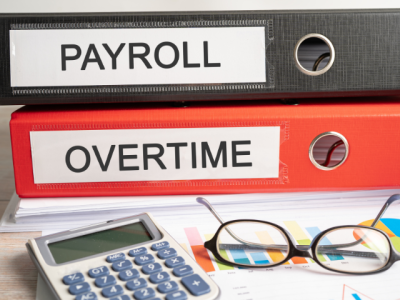
The U.S. Department of Labor (DOL) recently announced its final ruling on overtime eligibility under the Fair Labor Standards Act (FLSA). The changes are significant and will affect many employees who currently qualify as exempt from the FLSA and its overtime rules. Elected officials are exempt from the FLSA and not entitled to overtime pay. The assistants of elected officials may be exempt from the FLSA, and you should consult with counsel to determine if the new thresholds apply to those positions.
To be classified as exempt from overtime requirements and other FLSA rules, a typical municipal employee’s job must meet one of the DOL-defined “job duties tests.” There are separate tests for Administrative, Executive, and Professional (EAP) exemptions. Additionally, to qualify for one of these EAP exemptions, employees must earn a minimum salary, regardless of the number of hours worked during the week. The current minimum is $684 per week, or $35,568 annualized. In other words, if an employee earns less than $684 per week, even if they are performing Administrative, Executive, or Professional work, an employer must pay them hourly, and the employee is entitled to earn overtime for hours worked over 40 in a week.
The new FLSA rules will be implemented in two steps that substantially increase the minimum salary that an employer must pay an employee to be properly classified as exempt, regardless of their job duties. The new minimums are as follows:
- Effective July 1, 2024: $844 per week ($43,888 annually)
- Effective January 1, 2025: $1,128 per week ($58,656 annually)
Also, in order to qualify for the Highly Compensated Employees (HCE) exemption, the minimum annual salary requirement will increase from $107, 432 to $132,964 on July 1, 2024 and then to $151,164 on January 1, 2025.
The new rules also provide a mechanism to increase these minimum salary thresholds every three years.
In practical terms for VLCT members, the changes mean employees who earn less than $844 per week as of July 1, 2024, will be eligible for overtime pay if their hours worked exceed 40 during the work week. Likewise, as of January 1, 2025, employees who earn less than $1,128 per week will be eligible for overtime. To prepare for these changes, members should identify which employees, if any, are currently classified as exempt and whose status will change with these new rules. If any exempt employees earn less than the new salary amounts, the employer must reclassify them as non-exempt.
Of course, it’s important to remember that the minimum salary is required, but not sufficient, for a position to be classified as exempt. The DOL’s job duties tests are a required part of the exempt analysis.
At this time, you may want to evaluate your budget and operation in view of these changes. Some relevant considerations are:
- Do you have appropriate time and attendance processes in place for employees who may become hourly?
- If employees are on the borderline, can you increase their base salary to maintain exempt status?
- Also, if you maintain an employee’s current rate and convert them to non-exempt status, can you forecast how much overtime they are likely to earn? Remember that activities such as attending night meetings, responding to work email or texts after hours, being on call on weekends, and checking email or responding to calls on vacation are all compensable activities for which employees would be entitled to pay.
- Closely look at your job descriptions to be sure that the duties or qualifications that support a position’s FLSA exemption are clearly defined.
Also remember that any time you change an employee’s pay or method of performing work, you should talk to them about it first! And if a labor union is involved, you cannot change a term or condition of employment without fulfilling any relevant bargaining obligations.
For more information, your US DOL contact person is Ana Maria Rogers
Community Outreach and Resource Planning Specialist
Northern New England District Office
United States Department of Labor
Wage and Hour Division
Direct Phone: 207-420-0165
Fax: 603-606-3140
Email: rogers.ana.m@dol.gov